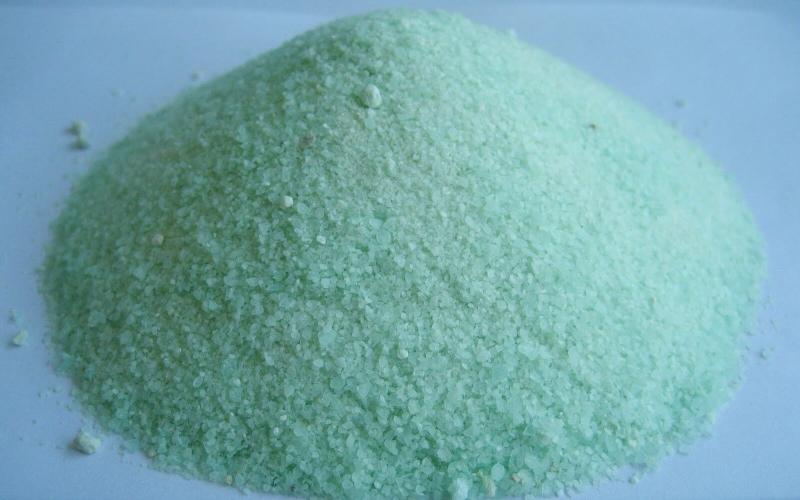Introduction
Ferrous sulfate, a chemical compound with the formula FeSO₄, is a widely recognized and important substance in various industries and applications. It is primarily composed of iron and sulfur, and its versatile properties make it an indispensable ingredient in numerous sectors. This article aims to shed light on the uses, benefits, and precautions associated with ferrous sulfate.
Uses of Ferrous Sulfate
-
Medicine and Nutrition: One of the most common applications of ferrous sulfate is in medicine and nutrition. It is a primary source of iron supplements used to treat iron deficiency anemia, a condition that affects millions of people worldwide. Ferrous sulfate provides a highly bioavailable form of iron, which aids in the production of red blood cells and helps alleviate symptoms of anemia such as fatigue and weakness.
-
Water Treatment: Ferrous sulfate plays a significant role in water treatment processes. It acts as a coagulant, aiding in the removal of impurities, heavy metals, and pollutants from water sources. By promoting the formation of flocs, it facilitates the separation of contaminants, resulting in cleaner and safer water for consumption.
-
Agriculture: In agriculture, ferrous sulfate serves as a vital micronutrient supplement for plants. It addresses iron deficiencies in the soil, which can lead to yellowing of leaves and reduced crop yield. By adding ferrous sulfate to the soil, farmers can improve the health and growth of their crops, ensuring better harvests.
-
Industrial Applications: The chemical industry extensively uses ferrous sulfate in the production of various compounds and products. It serves as a reducing agent in the synthesis of chemicals, and its ability to change oxidation states makes it useful in diverse reactions.
-
Wastewater Treatment: Similar to its role in water treatment, ferrous sulfate is also employed in wastewater treatment processes. It aids in the reduction of phosphates, helping to mitigate eutrophication in bodies of water caused by excessive nutrient levels.
Benefits of Ferrous Sulfate
-
Iron Supplementation: As mentioned earlier, ferrous sulfate is an effective way to combat iron deficiency anemia, a widespread health issue. By restoring iron levels in the body, it boosts energy levels, enhances cognitive function, and strengthens the immune system.
-
Cost-Effective Water Treatment: In water treatment and wastewater treatment, ferrous sulfate offers a cost-effective solution. Its ability to remove contaminants efficiently makes it a preferred choice for many municipalities and industries dealing with water purification.
-
Improved Crop Yields: For farmers, ferrous sulfate proves to be invaluable in maintaining healthy and thriving crops. Its ability to correct iron deficiencies ensures that plants have the necessary nutrients to grow optimally, leading to increased agricultural productivity.
-
Reduction of Phosphates: In wastewater treatment, the use of ferrous sulfate aids in the reduction of phosphates, which can otherwise cause harmful algal blooms and negatively impact aquatic ecosystems. By mitigating these issues, ferrous sulfate helps maintain ecological balance.
Precautions and Considerations
While ferrous sulfate offers numerous benefits, it is essential to handle and use it with care:
-
Dosage and Administration: In medical applications, ferrous sulfate supplements should only be taken as prescribed by healthcare professionals. Excessive iron intake can lead to toxicity, causing nausea, vomiting, and even organ damage.
-
Storage and Handling: Proper storage is crucial to prevent the oxidation of ferrous sulfate. It should be kept in a dry and cool place, away from moisture and incompatible substances.
-
Environmental Impact: In large quantities, ferrous sulfate can have adverse effects on the environment. Disposal should be done responsibly, following local regulations and guidelines.
-
Interactions with Other Substances: Ferrous sulfate can interact with certain medications, reducing their efficacy or causing potential side effects. Consult a healthcare professional if you are taking other medications alongside iron supplements.
Conclusion
Ferrous sulfate, a versatile compound, finds applications in medicine, water treatment, agriculture, and various industrial processes. Its significance in addressing iron deficiency anemia and improving water quality cannot be overstated. However, like any substance, it must be used responsibly, adhering to recommended dosages and handling procedures to ensure its benefits are harnessed effectively while minimizing potential risks. Understanding the importance of ferrous sulfate allows us to utilize this compound to its fullest potential, positively impacting human health, agriculture, and environmental preservation.
